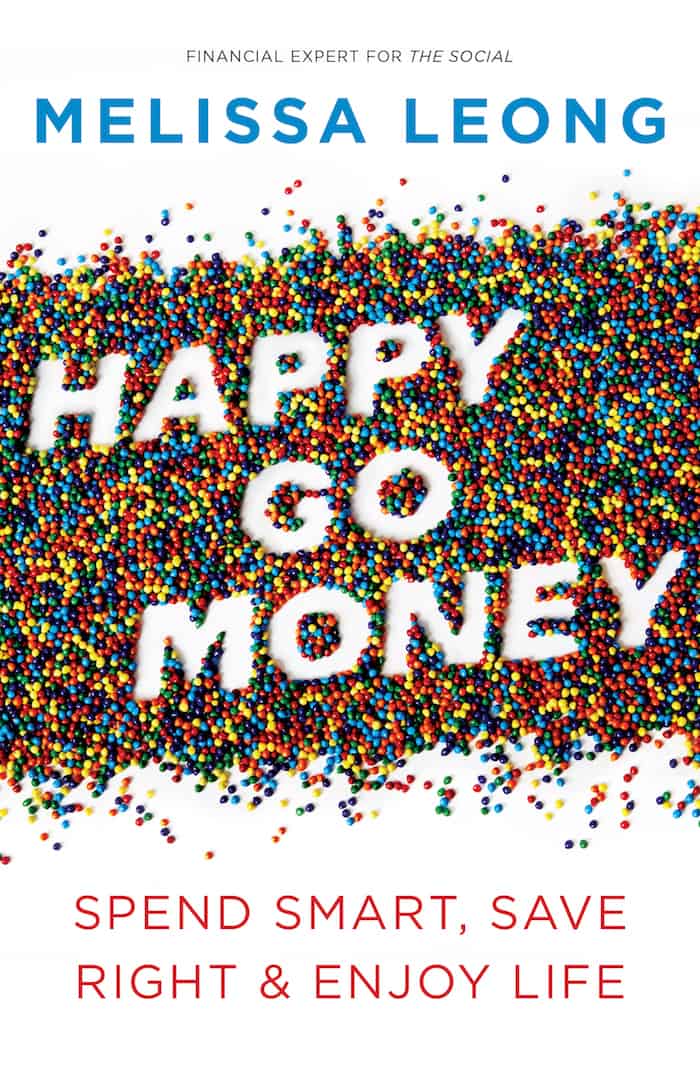While it’s no question that money woes are a major buzzkill, some of us get so bogged down with financial worry that it clouds our perspective on what’s possible.
A new book by journalist and financial expert Melissa Leong aims to shake up your assumptions and empower you to change your relationship with money. With Leong as your frank, often funny, and always smart guide, Happy Go Money combines the psychology of happiness with financial management tools to set you on a better financial path in 2019.
We chatted with Leong about the book, what she’s learned, and the true price of happiness.

Melissa Leong. Photo by Greg Tjepkema.
SDTC: While researching this book, what did you learn about money/happiness that surprised you?
If you had asked me years ago, “Can money buy happiness?” I would’ve said, “Hell no.” On my first day of journalism school, the professor said, “If you want to make a lot of money, there’s the door.” And I didn’t care, because I thought I was going to be a war correspondent subsisting off of instant noodles and the satisfaction of being a force of good. I’ve never been motivated by money. But I’ve since learned that you can buy happiness—to a point. You just have to know what to spend on and how to manage your money for joy.
We tend to think of personal finances as a slog. We’re either dutifully saving for the future or feeling guilty for splurging. Why do you think that is, and what can be done to turn that narrative around?
The people in my life mostly bitch about finances or say nothing at all. When was the last time that you heard your friends or your family talk positively about money? And what about you? What does your inner monologue sound like when it comes to money? If the language is around fear and shame and longing, how the heck are you ever going to feel good or motivated or confident about making smart money choices?
Stop beating yourself up and stop complaining about your money situation. For every negative thing you say about your money, quickly say three positive things. And remember, you’re not a victim of your circumstances. You’re in control. You’re always choosing how to use your resources, including time and money. Don’t say, “Oh, I don’t have time for that.” Think, “I choose to use my time in other ways” or “I am prioritizing something else.” If a phrase doesn’t sit right with you (for example, “I am prioritizing this concert over putting money aside in case my dog gets sick again”), re-evaluate your choice.
What effect does debt have on happiness? Can we be happy and still be in debt?
No. Debt is the greatest happiness killer of all. In a study of life’s most stressful experiences, out of fifty-six events, including your spouse cheating on you and a period of homelessness, getting into debt beyond means of repayment beats almost every crappy experience to rank number five.
So getting rid of your debt will absolutely make you happier. It will improve your relationships, because more debt is correlated with a higher likelihood for divorce. Once the debt is cleared, you’ll feel pride and have more freedom to pursue other goals. Make it a priority. List all of your debts and throw everything you can at the one with the highest interest rate, [which is] most likely your credit card.
If we are nearing forty and still haven’t started saving for retirement, are we totally screwed? What should we do?
You’re not screwed. But let me use my favourite TV show to create an analogy: If you had hatched your dragon egg in your twenties and fed it little by little, time will turn it into a huge beast, capable of helping you conquer the world. Hatching your egg in your forties, however, means that your dragon will have much less time to grow big enough, which means you’ll have to feed it aggressively in order to be the queen of your domain.
It’ll be tough, I know, because we’ve got so many competing priorities (e.g., taking care of kids/parents, paying for fertility treatments, carrying our mortgage), but automate your retirement savings now if you haven’t already done so. If your company matches some or all of your retirement contributions, get on that and max it out completely. Visit your bank or an advisor or look into a Robo-advisor to invest for the future. The sooner, the better.
What do you hope readers take away from your book?
We have to be clearer about our goals. If, for example, the goal is to build self-esteem and you’re doing it through dieting and cosmetic work, is that ultimately effective? The same applies to achieving a happy, fulfilled life. If you’re trying to get that through attaining wealth and material goods, then let’s have a conversation.
Happiness is also not a destination. It’s a work in progress like success and confidence. It’s okay to trip up when it comes to structuring your finances for a good life. You learn, you keep going and you try again.
What do you love most about talking money?
Money is just a tool. A tool that we use to be happy. I just want to help people be happier in life.
Order your copy of Happy Go Money here.



 Follow Us On Instagram
Follow Us On Instagram
